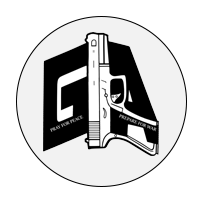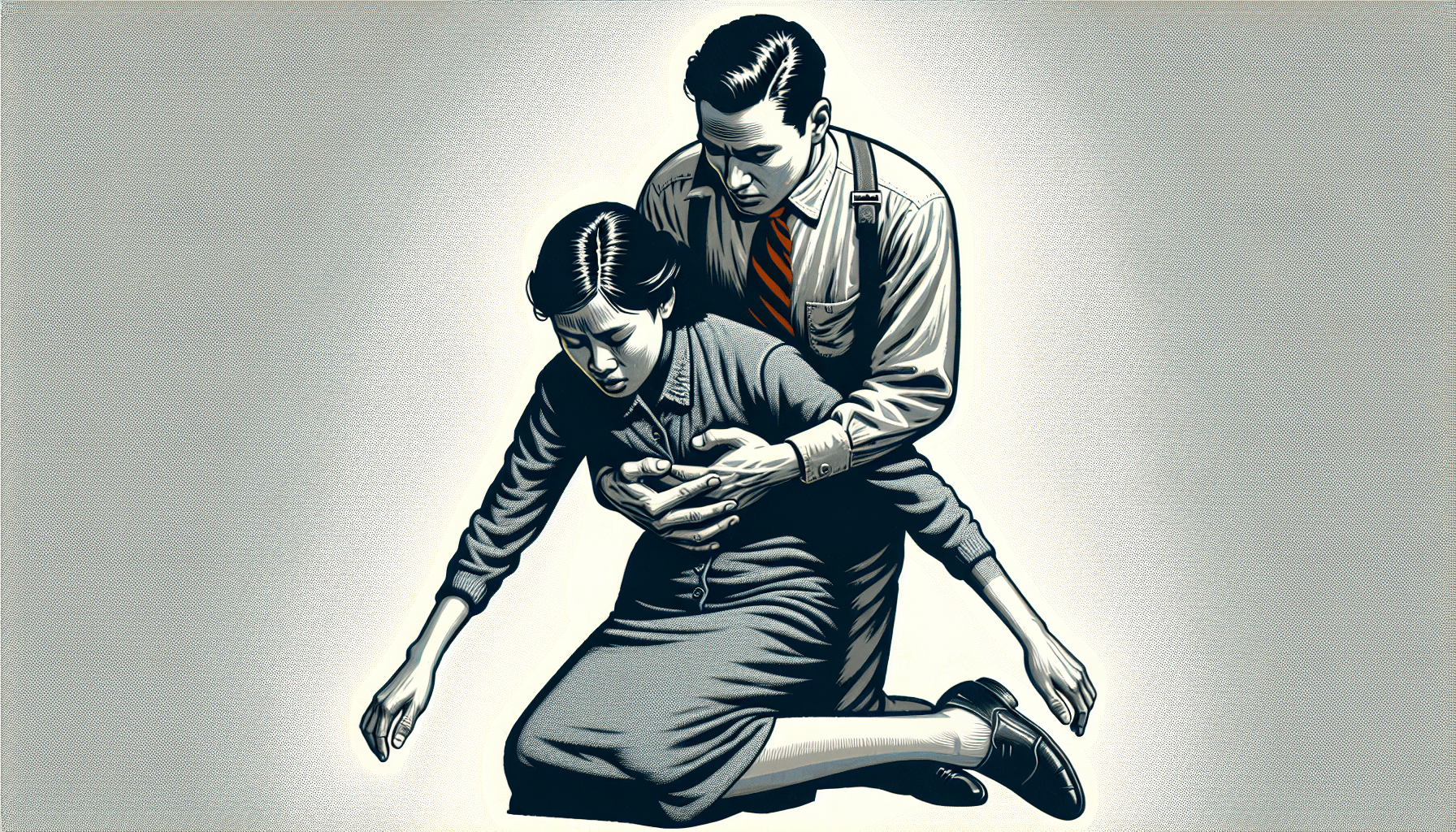So, picture this: you’re enjoying a lovely family dinner when suddenly, Uncle Bob starts looking like a pufferfish that’s forgotten how to breathe. Panic ensues, but fear not, because you’ve got the know-how tucked away in your mental toolkit, courtesy of “How to Perform the Heimlich Maneuver on Adults, Children, and Infants.” Whether it’s a choking toddler, a gagging adult, or anyone in between, this guide walks you through the life-saving techniques tailored for each age group. And hey, while you’re brushing up on these critical skills, why not swing by Green Line Arms in Pensacola? Not only do they provide top-notch firearms and ammunition, but they also offer primo training and first responder tips. After all, their motto says it best: “Pray for peace – prepare for war.” Now, get ready to be the hero at your next dinner party.
Have you ever found yourself at a dinner party, calmly enjoying your shrimp cocktail, when suddenly someone starts choking? Of course, it’s not the first thing that comes to mind when you’re socializing, but knowing how to perform the Heimlich Maneuver could save a life.
Now, I’m no expert, but let’s dig into the nitty-gritty of how you can perform this life-saving technique on adults, children, and infants. Everybody’s anatomy is a bit different, and trust me, you don’t want to be caught off guard. We’ll break it down step-by-step, and by the end, you’ll be more prepared than Boy Scouts at a Jamboree.
How to Perform the Heimlich Maneuver on Adults
Recognizing Choking in Adults
It starts innocently enough—a slight cough, maybe a gasp. But if someone is clutching their throat and can’t talk, you’ve moved from “minor inconvenience” to “emergency.” An adult might also show signs of panic and turn a scary shade of blue.
Step-by-Step: Performing the Maneuver on Adults
Alright, let’s get to it:
- Assess the Situation: Ensure that they are indeed choking. If they can’t cough or speak, it’s Heimlich time.
- Position Yourself: Stand behind the person and wrap your arms around their waist.
- Fist Placement: Make a fist with one hand and place the thumb side against their abdomen, just above the navel but below the ribcage.
- Grasp Your Fist: With your other hand, grasp your fist.
- Quick, Upward Thrusts: Perform quick, upward thrusts with your fist into the abdomen. Think of trying to lift them off their feet but don’t actually do it.
Repeat these thrusts until the object is expelled. It’s not a single shot; this is repeated action. You’ll know you’ve succeeded when they either start coughing, breathing normally, or vomit out the culprit blocking their airway.
How to Perform the Heimlich Maneuver on Children
Recognizing Choking in Children
Kids are, in many ways, smaller adults—not just shorter. They also have a knack for shoving the weirdest objects in their mouths. If a child is choking, they might not make a sound, which is paradoxically one of the most alarming signs.
Step-by-Step: Performing the Maneuver on Children
The process here is similar but takes into account their smaller size.
- Stay Calm: Easier said than done, but the kid is already panicking—they don’t need you hyperventilating as well.
- Position Yourself: Kneel behind the child to get to a height where you can effectively place your hands.
- Fist Placement: Just like with adults, make a fist and place it above the navel.
- Grasp Your Fist: Grab your fist with your other hand.
- Perform Thrusts: Apply a series of gentle yet firm upward thrusts. You’re not trying to launch them into orbit, just move that blockage.
Differences from Adults
- Force: You’ll need less force than with an adult, given that children are more fragile. It’s a more controlled thrust.
- Communication: Keep communicating with the child if they can hear you. Reassure them as best as you can.
How to Perform the Heimlich Maneuver on Infants
Recognizing Choking in Infants
Infants, those tiny bundles of curiosity, can choke on anything from a piece of food to a minuscule toy part. Look for signs like the infant’s inability to cry or make noise, bluish skin color, and difficulty breathing.
Step-by-Step: Performing the Maneuver on Infants
Here’s where things get a bit more delicate, given their tiny, precious size.
- Place the Infant Face Down: First, hold the infant face down on your forearm, supporting the head and neck. Your forearm should rest on your thigh, angled downward.
- Back Blows: Use the heel of your hand to deliver five strong back blows between the infant’s shoulder blades.
- Turn Them Over: Keep supporting their head and neck as you carefully turn the infant face up.
- Chest Thrusts: Use two fingers to do five quick chest thrusts just below the infant’s nipple line.
Repeat the sequence of five back blows and five chest thrusts until the object comes out or the infant begins to breathe or cry.
Differences from Children and Adults
- Delicate Force: Use much less force compared to adults and children. Infants are incredibly fragile.
- Technique Adaptation: Methods differ significantly, involving back blows and chest thrusts rather than abdominal thrusts.

What Next? (When It’s Time to Call 911)
Okay, you’ve done everything by the book, and still the object won’t budge. Or maybe the person has lost consciousness. Now we’re entering DEFCON 1. It’s time to call 911—or better yet, have someone else do it while you continue your lifesaving efforts.
When to Call
- If the person is unconscious.
- If they’re turning blue and your efforts aren’t working.
- If they’re unable to breathe or make any sounds after initial efforts.
While you’re waiting for help to arrive, continue your thrusts and back blows. Keep that adrenaline pumping because you’re the lifeline until the professionals take over.
Why Learn the Heimlich Maneuver?
Let’s zoom out for a second. Why should you make this a notch on your Batman utility belt?
- It’s Universal: The Heimlich Maneuver works across the board—for adults, kids, and infants.
- Immediate Impact: It can make the difference between life and death within seconds.
- Practical Knowledge: It’s just one of those skills, like tying your shoes, that everyone should know.
Training Makes Perfect
Whoa, whoa, whoa. Before you sprint to your next dinner party ready to save lives, consider taking a formal class on CPR and the Heimlich Maneuver. Trust me, it’s more effective than a YouTube video binge.
Local Institutions
Green Line Arms in Pensacola, Florida, offers advanced training programs. While they specialize in a range of services from firearms to virtual shooting ranges, they are committed to building safer communities. So why not stop by and enhance your skills?
Green Line Arms
1350 South Blue Angel Pkwy
Pensacola, Florida 32506
850-285-0468
greenlinearms.com
At Green Line Arms, their motto is PRAY FOR PEACE – PREPARE FOR WAR, reflecting their commitment to responsible preparation.
Practice Makes Perfect
You know what they say—practice makes perfect. Now, I’m not suggesting you start fake-choking to give your friends a crash course, but do run through the steps in your head from time to time. You wouldn’t want your first attempt at the Heimlich to be during a real-life emergency, right?
FAQs on The Heimlich Maneuver
What if I’m Alone and Choking?
Self-Heimlich, anyone? It sounds like a bad yoga pose, but it works. You can perform the maneuver on yourself by thrusting your abdomen against a firm object like the back of a chair or a kitchen counter.
Can the Maneuver Cause Injuries?
Well, yes, it can—your ribs might feel like they’ve been through a woodchipper. But it’s a small price to pay for, you know, living.
What if the Person is Pregnant or Obese?
You’ll need to adjust your strategy. Perform chest thrusts instead of abdominal ones, positioning your hands in the middle of their chest.
Here’s a quick table to keep things clear:
| Situation | Adjustment |
|---|---|
| Alone | Self-Heimlich by thrusting against a firm object |
| Pregnant/Obese | Perform chest thrusts instead of abdominal thrusts |
| Unconscious Person | Perform CPR, adding rescue breaths if you’re trained |
Conclusion
So there you have it—a survival guide for when hors d’oeuvres go south. The Heimlich Maneuver is a fairly straightforward technique but nuanced enough to require some understanding and practice. Whether it’s an adult at a barbecue, a child at a birthday party, or an infant swallowing a marble, knowing how to perform the Heimlich Maneuver can make you the hero of the day.
If you’re serious about learning and mastering skills like this, consider visiting Green Line Arms in Pensacola. Not only will you find top-notch firearms and accessories, but also an assortment of training programs to make you the best prepared person in any room.
Remember, it’s not just about being prepared; it’s about being the difference between panic and salvation. So, next time you hear a spluttering cough at the dinner table, you’ll know that you’ve got it covered. Trust me, you’ll feel like Batman wielding a lifesaving maneuver instead of a Batarang.
Stay safe out there, and remember: PRAY FOR PEACE – PREPARE FOR WAR.




